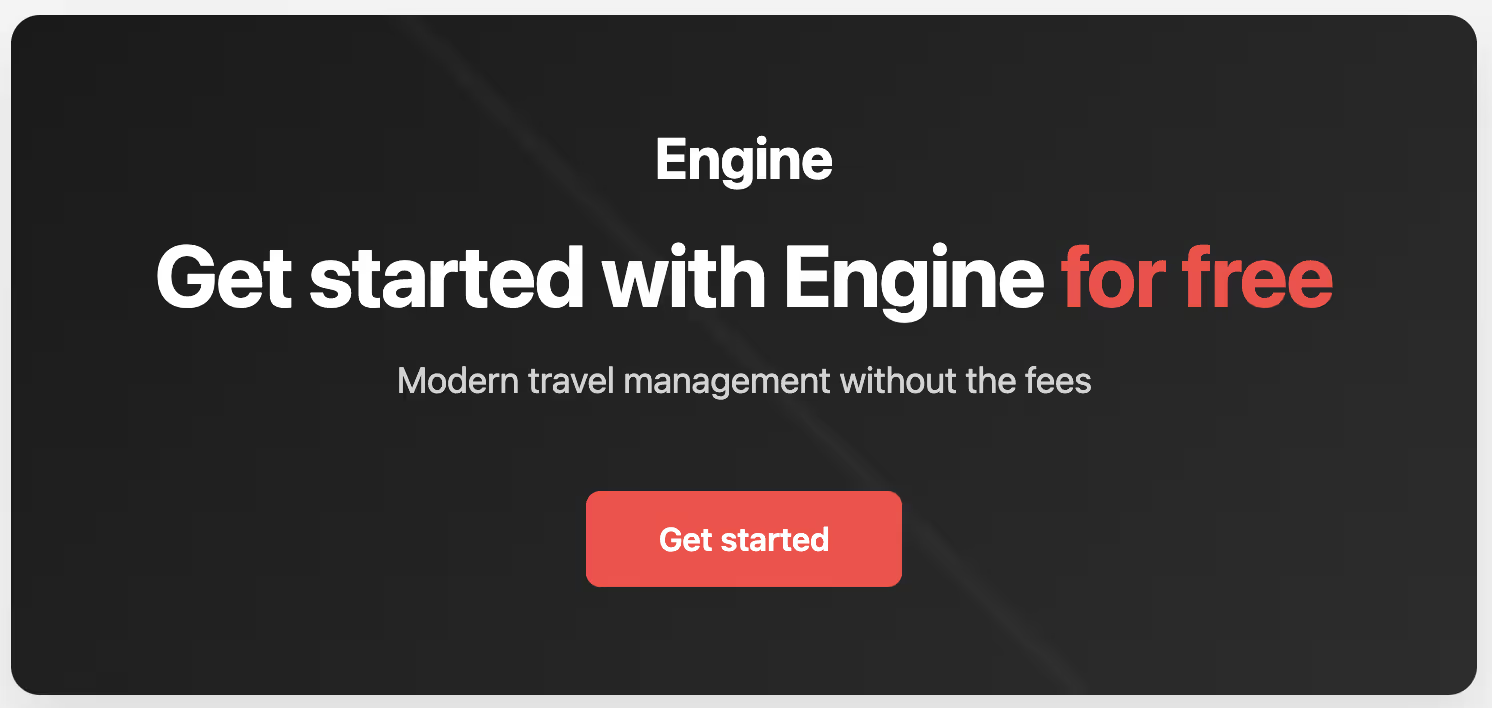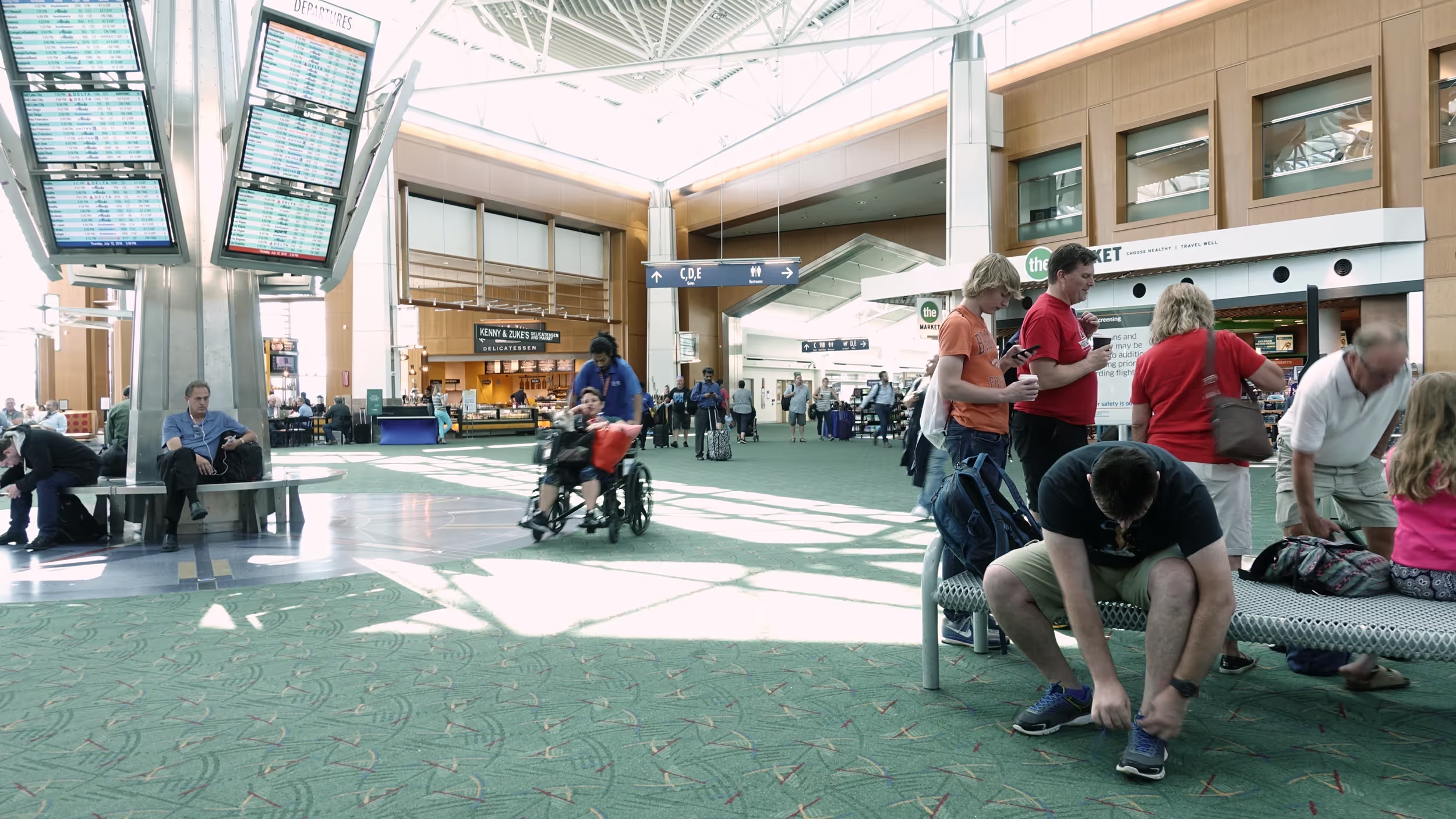Turn Crew Travel from Budget Killer into Profit Protector

Your telecom installation crew finishes a three-month cell tower upgrade project across six states. The accounting system shows 18% profit margin—great news, right?
Not when your project manager knows the real story. Half the crew used personal cards for hotels and never submitted receipts. Two contractors' travel expenses disappeared completely. Emergency accommodation costs got buried in "general project expenses."
The real profit? Probably closer to 5%.
These business travel challenges eat your project margins. Crews waste 40 hours monthly hunting receipts and matching credit card charges.
Your system should track every travel dollar, stay compliant, and turn travel from cost center into competitive advantage.
Centralize Trip Data with Modern Integration
Right now, your travel booking is probably in chaos. Crews use Expedia, hotels.com, and direct bookings. Project managers grab whatever credit card works. Contractors submit receipts weeks later—if at all.
Every scattered booking platform doubles your reconciliation time and triples your audit risk. Project-based travel creates dozens of little transactions that need to be matched back to the right cost-center and project.
You need one booking platform that handles your entire crew and connects to your existing project management and accounting systems. Here's how to choose and implement it:
Map Your Current Mess
Count how many platforms crews use for booking. Document where travel costs hide in your accounting: project codes, general expenses, or nowhere at all.
Many companies discover they're burning 40+ hours monthly just reconciling scattered travel charges.
Pick Integration Requirements
Your platform must sync with existing project management tools (Monday, Asana, Microsoft Project) and accounting software (QuickBooks, NetSuite, Sage).
Verify offline booking works since field crews often book with spotty internet. Include contractor access since independent contractors create the biggest tracking headaches.
Test Before You Commit
Pilot with one crew and project. Verify automatic project tagging works and data flows to accounting without manual entry.
Your platform should integrate with existing tools, not replace them. Crews book through familiar interfaces while cost allocation happens automatically.
Engine integrates with major HR platforms like Workday and BambooHR to automatically sync user lists, plus offers SSO capabilities for streamlined access. Crews book through familiar project portals while automatic cost allocation happens behind the scenes, eliminating separate app adoption challenges.
Turn Policy Violations into Automatic Blocks
Vague travel rules are like half-drawn maps. You and your crew end up wandering, and finance spends days untangling the mess.
Unclear spending limits create approval delays. Missing hotel lists mean crews pay premium rates, and every emergency without protocol creates policy violations that audit firms love to flag.
Field crews face genuine emergencies, project timelines change constantly, and rigid policies break under real-world pressure.
Document Smart Policy Rules
Set spending limits by role and project type. Emergency response gets higher limits than planned installations.
Create preferred vendor lists with negotiated rates your crews can use near job sites. Build approval workflows that match existing management structures.
Include environmental requirements for sustainability reporting that clients increasingly require.
Enforce Through Technology, Not Micromanagement
Encode rules in your booking platform rather than policy manuals nobody reads. Create role-based variations. Project managers get different spending authority than field crews.
Enable emergency protocols with automatic escalation so crews get accommodations quickly while maintaining proper approvals.
Connect compliance to business reality. Immigration, tax, and posted worker obligations apply to multi-state projects. Your travel tracking system should handle these automatically.
Communication That Works
Provide platform training during regular safety meetings when crews are already gathered. Include policy reminders in booking confirmation emails.
Create clear escalation paths for policy exceptions because emergencies will happen.
When your supervisor tries to book that $400 hotel room, the system should show "Over Policy - Requires Approval" before the charge hits your card. Engine displays only hotels that fall within your travel policy’s spending limits right on the booking screen, preventing surprises instead of catching them later.
Catch Budget Overruns Before They Happen
Lost paper receipts, half-scanned images, and vague line items create your biggest audit risk.
Manual expense entry means project costs stay invisible until month-end, budget overruns hide until quarterly reviews, and compliance gaps surface only when regulators ask questions.
Receipts get lost, categorization happens weeks later when details are forgotten, and project cost allocation becomes guesswork.
Set Up Automated Capture Systems
- Connect corporate credit cards to automatic transaction import with project categorization
- Deploy mobile apps with offline receipt capture and auto-tagging
- Enable digital receipt delivery from major hotel chains directly to project codes
- Set up GPS-based mileage tracking for approved job site routes
- Configure contractor workflows with company-controlled booking access and automatic spend limits
Implement 2025 Automation Capabilities
Receipt digitization with automatic project allocation based on booking data. Integration with calendar systems for automatic trip purpose capture.
Real-time budget impact notifications sent directly to project managers. Automatic compliance documentation that creates audit trails without manual data entry.
Specific Implementation Example
When your electrical crew books emergency accommodations after equipment failure, the system automatically tags expenses to the correct project code.
Corporate card transactions import with pre-filled categories. Contractor expenses flow through your company account with preset spending limits.
Avoid Common Automation Mistakes
Don't assume crews will adopt new apps. Integrate with tools they already use. Avoid over-categorization that creates user friction. Add contractor-specific tracking requirements from day one since they cause the most reconciliation problems.
Your corporate card feeds should sync directly to project codes, turning real-time capture from impossible tasks into automatic processes.
Engine captures every receipt, tags every transaction, and allocates every cost as bookings happen.

Avoid Million-Dollar Privacy Violations
Travel tracking systems collect sensitive employee data, including personal credit card numbers, location patterns, individual spending habits, and contractor information. Handle this data wrong, and one privacy violation can cost more than your entire travel budget.
GDPR fines start at $10 million, state privacy violations trigger class-action lawsuits, and data breaches turn loyal contractors into legal adversaries. You need expense oversight without turning your travel system into crew surveillance.
Start With Data Minimization
Define what business data you need. Project location and cost allocation, not personal activity monitoring.
Implement role-based access so project managers see their projects only. Use tokenized payment methods for contractor bookings. Schedule automatic data retention management according to legal requirements.
Meet Current Compliance Requirements
Current regulations include GDPR, CCPA, and evolving state privacy laws.
Create data usage policies that employees understand: one page, not legal documents. Integrate with existing privacy compliance tools rather than building separate systems. Handle employee consent through existing HR systems.
Design Transparent Permission Structures
- Finance teams: Budget and compliance data across all projects
- Project managers: Travel status and costs for their projects only
- Field supervisors: Booking capabilities with preset spending limits
- Individual travelers: Access to their own travel history and receipts through self-service portals
Build Trust Through Transparency
Explain what business data gets tracked and why it improves project management. Provide easy access for employees to view their own travel information. Send automatic privacy policy updates through existing communication channels.
Only capture what your accounting system needs: project codes, dates, costs.
Engine skips personal spending patterns, location tracking, and surveillance data that trigger privacy violations.
Spot Problems Before They Blow Your Margins
You can't fix budget problems you can't see until they've already blown your margins.
Without real-time visibility, project overruns hide until quarterly reviews, policy violations compound monthly, and cost-saving opportunities disappear before finance notices.
Effective business travel tracking requires metrics that drive decisions, not just data collection.
Track Essential Financial Metrics
Track travel costs as a percentage of project budgets:
- Target under 8% for most construction and field service work
- Monitor policy compliance rate with a target above 95%
- Calculate average cost per trip by project type to identify optimization opportunities
- Document savings from flexible booking policies and negotiated vendor rates
Monitor Operational Metrics That Matter
Count untracked travel days, target zero with automated systems. Measure time spent on monthly reconciliation. Target under four hours with proper automation.
Track contractor receipt submission compliance since this creates the most administrative burden, and monitor emergency booking frequency and cost impact to identify training opportunities.
Handle 2025 Reporting Requirements
Carbon footprint tracking by project for client sustainability deliverables. Real-time budget variance alerts integrated with project management systems.
Automated compliance documentation for regulatory requirements. Cash flow forecasting based on scheduled crew deployments and accommodation commitments.
Create Measurement Routines That Stick
Send automated weekly dashboard updates to project managers. Schedule monthly finance reviews focused on exceptions rather than data entry. Conduct quarterly policy assessments and annual vendor performance reviews.
When the Denver job hits 90% of the travel budget, your project manager should see the warning in the same system they check daily.
Keep Systems Running When Projects Go Sideways
Projects change faster than airline schedules, turning every exception into manual nightmares. Weather delays, emergency deployments, and group booking changes break rigid systems.
Solve Common Operational Challenges
Group booking solutions: bulk accommodation booking with individual project cost allocation when crews work multiple jobs, split billing capabilities for mixed crews across different projects, and last-minute crew size changes without expensive cancellation penalties.
Emergency protocols: after-hours booking approval workflows for equipment failures and safety emergencies, weather delay accommodation extensions with automatic budget adjustments, and expedited expense processing for emergency equipment transportation.
International compliance: posted worker documentation for multi-state projects lasting more than 30 days, immigration compliance tracking for crews crossing borders regularly, and tax implication management for extended international assignments.
Build flexibility into systematic processes rather than relying on manual workarounds that break tracking consistency.
Weather delays your concrete pour by three days? Extend the crew's hotel stay without cancellation fees. Equipment breakdown requires emergency dispatch? Engine's flexible booking handles these changes while approvals route automatically.
Stop Bleeding Money on Outdated Policies
Travel policies that saved money last year might be bleeding cash today. Rate changes and crew pattern shifts happen monthly while reviews happen annually. Set a cadence for reviewing your travel policies:
- Quarterly: Review policy effectiveness and cost trends and implement system updates based on user feedback.
- Monthly: Monitor compliance rates, cost patterns, and contractor submission efficiency.
- Annually: Assess vendor performance, system integration effectiveness, and regulatory updates.
Continuous improvement works when built into existing review processes rather than creating separate assessment schedules that get skipped during busy periods.
Engine Simplifies Tracking for Project-Based Operations
Standard business travel platforms target office workers with corporate credit cards and predictable travel patterns. Project-based operations need different capabilities that match operational reality.
Engine provides unified booking with easy project cost allocation for field crews and contractors. Integration with existing tools eliminates separate system adoption.
Group booking handles crew accommodations by managing all the hotel calls and rate negotiations for you. Real-time budget visibility gives project managers cost control.
Over 1 million travelers use Engine's project-focused approach, generating measurable cost savings and reduced administrative overhead for companies that build, install, and maintain infrastructure.
Business travel tracking built for how project-based operations work—not how enterprise software thinks they should work.
Ready to see how Engine handles business travel tracking for your operations? Experience project-focused travel management that integrates with tools you already use.
Frequently Asked Questtions
How long does it take to implement a business travel tracking system for a project-based company?
Most companies complete basic implementation within 4-6 weeks, including system integration, policy setup, and initial crew training. Full adoption with optimized workflows typically takes 2-3 months as teams adjust to automated processes and contractors adapt to new booking procedures.
How do we handle trip problems when contractors refuse to use our company's travel booking system?
Start by clearly communicating the business benefits—faster reimbursements, simplified expense submission, and better project cost tracking that protects their contract relationships. For persistent resistance, consider making system usage a contract requirement for new projects while grandfathering existing contractors with additional administrative fees to cover manual processing costs.
What kind of cost savings can we expect, and how quickly will we see a return on investment?
Most companies see 15-25% reduction in travel administrative time within the first quarter and 10-20% savings on travel costs through better rate negotiation and reduced booking fees. Full ROI typically occurs within 6-8 months when factoring in time savings, improved project cost accuracy, and reduced compliance risks.











.avif)










.avif)










